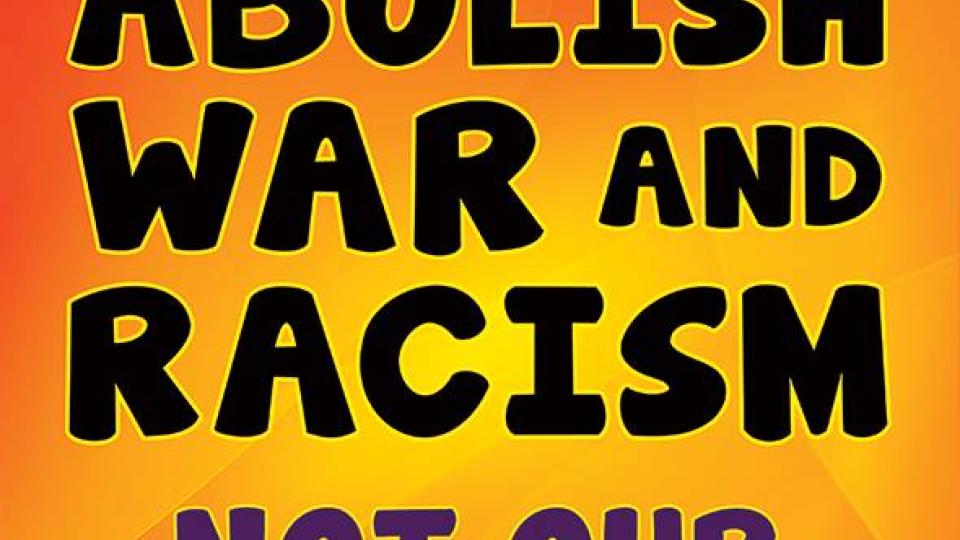New security laws an assault on our freedoms

In an atmosphere of manufactured hysteria about “Muslim terrorists” in our midst, the Coalition government has introduced sweeping attacks on civil liberties in Australia.
Prime minister Tony Abbott declared that the “balance between freedom and security may have to shift” and that “there may be more restrictions on some so that there can be more protection for others”.
The stage-managed raids on Muslim households around the country continue and TV stations happily distribute footage and “news” supplied or facilitated by the authorities. The first of three tranches of new security laws has been rushed through parliament with the support of the Labor Party and Palmer United Party.
The second bill is before parliament and a third bill is expected to be pushed through before the end of the year.
Western Australian MP Melissa Parke is the sole ALP voice in parliament against these laws. But when it came to the vote, she abstained. Only the Greens and two independents voted against it.
The first set of these new security laws makes it clear that the intent is to impose restrictions on our collective freedom. It allows the Australian Security Intelligence Agency (ASIO) to break into an unlimited number of computers, computer networks and other smart devices with a single access warrant.
Indeed, theoretically, a single warrant could give the spooks the right to break into the whole internet.
As Greens Senator Scott Ludlam pointed, these warrants “will allow ASIO, or those working for ASIO, to modify these computers, to delete files, to install malware, to seek higher levels of user access and to impersonate people — not only on a particular specified device but, as I think we have well and truly established, on any device that it is connected to or is considered to be in a relationship with [it].”
"The physical equivalent,” he added, “is if ASIO served a warrant to enter a particular house for a legitimate reason that also allowed them to enter any other house in the street or any other house in the country, actually, completely arbitrarily.”
ASIO was also given expanded powers to break into more actual houses with force and without being accompanied by the state or federal police. They have the power to break into neighbouring houses to those targeted and to use “reasonable” force not only at the point of breaking in but right through the operation.
The NSW Council for Civil Liberties has warned that this expanded power to conduct searches and use force, without the presence of the police, formally turns ASIO into a “secret police” and is a “significant danger to Australian democracy”.
The new laws also give ASIO legal immunity for breaking the law in any “special intelligence operation” designated by the attorney-general as long as such lawbreaking does not cause death, serious injury, torture, sexual offences or significant damage to property.
“Torture” was only reluctantly added to the list of exclusions after objections in parliament.
But the law makes it an offence (punishable by up to 10 years jail) to disclose anything about any designated “special intelligence operation”. So how will we ever know if the spooks have broken the law?
Who is going to blow the whistle on any wrongdoing by the spooks? The government says whistleblowers can now complain through proper channels. Yes — complain about misbehaviour of the authorities to the authorities.
In addition, the law lowers the record-keeping standards required by security agencies and weakens official oversight.
This gives the government the power to carry out huge cover-ups. It could close off whistleblowing or reporting on operations like the Timor Leste spying-for-the-oil-companies scandal, the bugging of the family of Indonesia's president or anything like the Edward Snowden or Chelsea Manning exposures — all of which were clearly in the public interest.
And this is just the first of the three new "security" laws.
Still to be put through are laws that will give the government the power to criminalise people for going to designated “no-go zones” around the world, shifting the onus on such people to prove that they were not there to fight for a broadly-defined enemy of the Australian state.
This second set of security laws will extend “preventative detention” and "control order" powers (to detain without charge and in secrecy and isolation from outside contact) and lower the threshold for the security agencies to obtain such warrants.
The proposed laws will also criminalise the broadly defined “advocating terrorism”. Speaking out against tyranny and oppression and in support of freedom fighters around the world could soon become an offence in Australia.
And then there are the proposals, in the third security bill, to compel media companies to retain metadata that will allow the security agencies to access more information about who we contacted by phone or computer and where we have been.
Since 9/11 there have been 54 pieces of “anti-terror” legislation introduced in Australia. The security and intelligence agencies already have huge power. We have seen them use and abuse these powers arbitrarily in the recent raids on Muslim households — detaining, assaulting and intimidating people with little evidence of any crime to show for it. We have seen the alleged abuse of the peaceful protesters in the Swan Island military base where they said they were assaulted, stripped, hooded with hessian bags, humiliated and intimidated.
These new laws are a further assault on our rights and freedoms and they should be opposed outright.